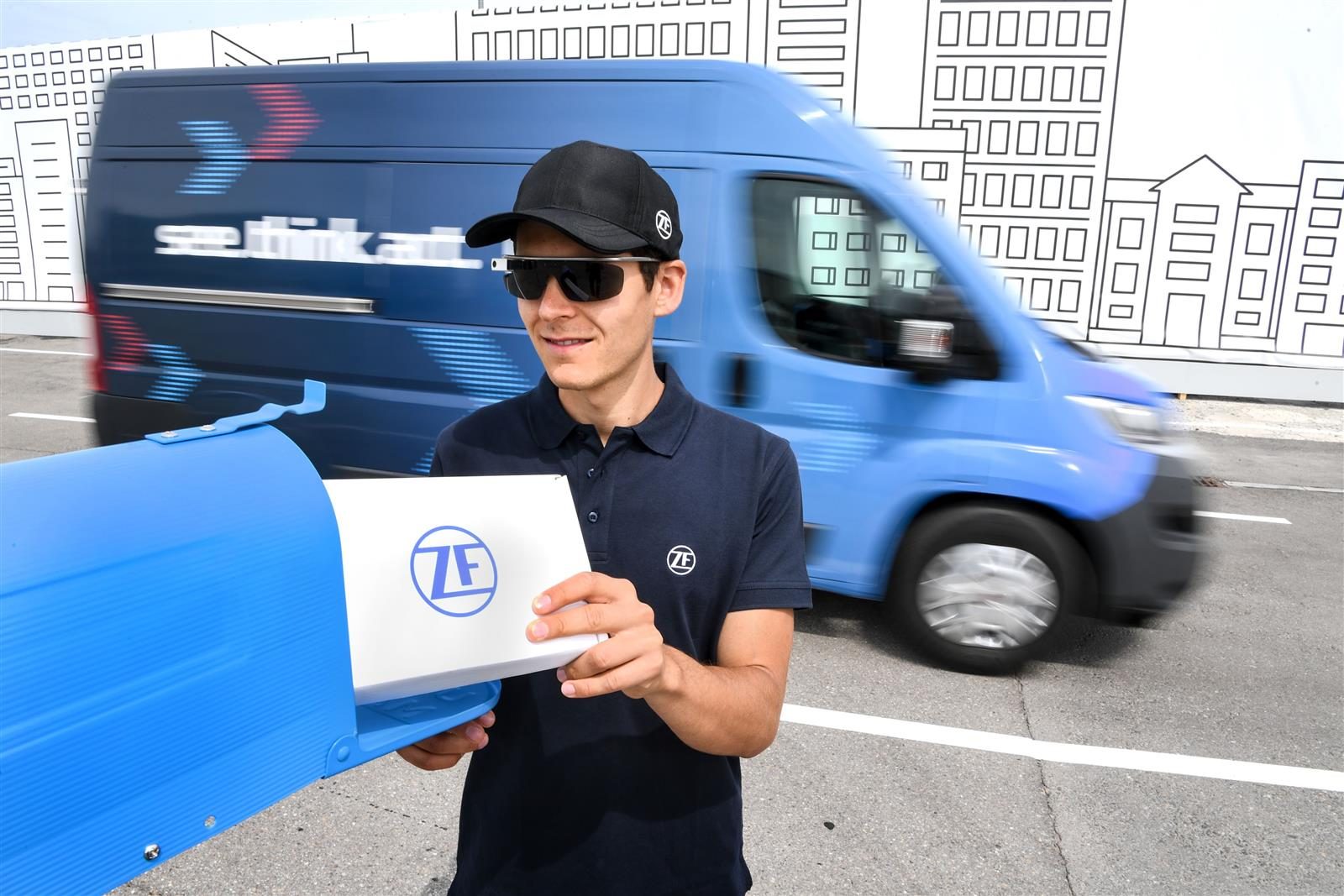
ZF announced at IAA 2018 that is planning to invest € 12 billion in e-mobility and autonomous driving in the next five years.
Wolf-Henning Scheider, CEO of ZF Friedrichshafen, said the company was revolutionising the ‘last mile‘ so that packages can be delivered more efficiently and cleanly.
With the headline ‘Smart Logistics‘ at IAA 2018, the company has bundled its technologies and – through automation, networking and electrification – and created attractive solutions for the complete logistics chain. Autonomous driving will prevail more quickly in the commercial vehicle sector due to reduced vehicle operating costs, while also helping to improve safety and efficiency.
ZF‘s Innovation Van has demonstrated how intelligent networking, autonomous driving and an all-electric drive support parcel delivery services in meeting the requirements of the future.
The all-electric delivery truck is equipped with level 4 autonomous driving functions and is designed to independently manoeuvre through city centres, stay in its lane without road markings, recognise traffic lights and road signs and avoid obstacles. It also has a FollowMe function that utilises a tablet-based remote control. If two addresses are close enough that it makes more sense for the delivery driver to stay on foot, the Innovation Van will follow the driver as if on a virtual leash. If there is no parking, the driver can send the vehicle ahead to the next stop to look for a parking space on its own.
ZF‘s two latest world premieres – the Innovation Truck and the Terminal Yard Tractor – show how the company is responding to key freight challenges. These vehicles can autonomously manoeuvre swap bodies, trailers and containers. The driverless, manoeuvrable vehicle functions improve efficiency, speed and environmental-friendliness at depots, company terminal yards and container ports.
“Driverless transport vehicles and automated functions will play a significant role particularly in zoned areas like company terminal yards, forwarding company depots or air and




